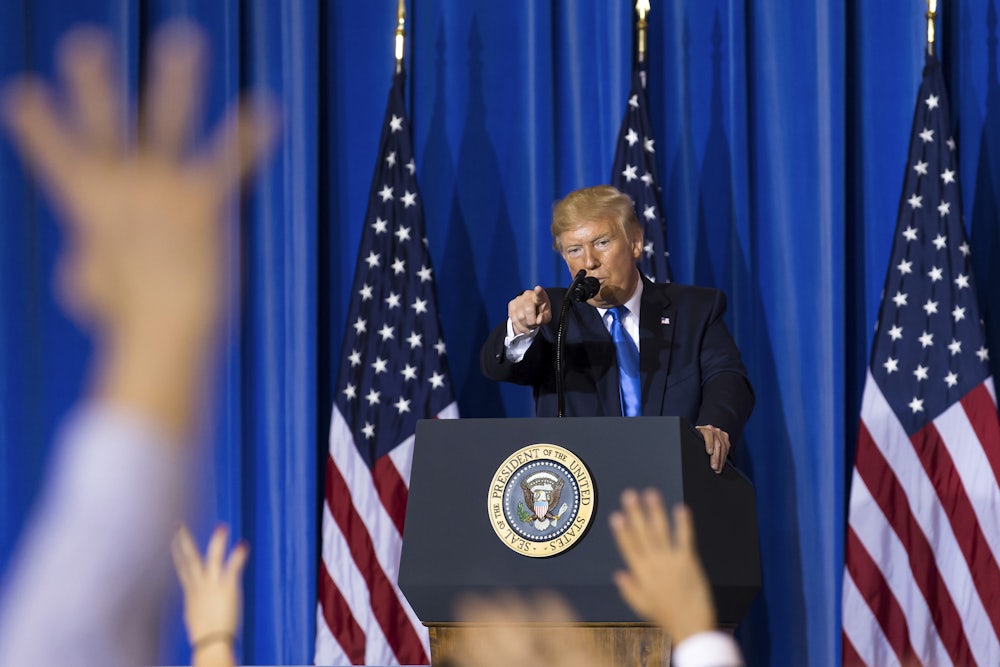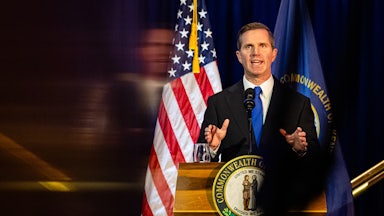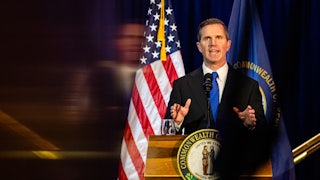Dear Donald Trump: Please win the 2024 election. A dying journalism business that flourished, briefly, while you last laid waste to the government awaits your rescue.
That is not my better self speaking. I fully understand that Trump’s reelection would disgrace our nation, given his recent felony conviction on 34 counts of falsifying business records. There have also, just this year, been multimillion-dollar civil judgments against Trump for fraud, rape, and defamation; a New York State judge’s order that Trump pay The New York Times $393,000 for bringing a nuisance claim against the paper; a London judge’s order that Trump pay 300,000 pounds ($380,403) for bringing a nuisance claim against Christopher Steele of “Steele dossier” fame—an order in which Trump is in breach, having coughed up only 10,000 pounds, according to Sky News; and $100,000 in contempt fees. Plus there’s a garden of federal and state indictments related to Trump’s attempts to overturn the 2020 election and his refusal to turn classified and other documents over to the National Archives, none of which have yet come to trial.
I further understand that restoring Trump to the White House would be catastrophic for the nation. The lion’s share of Trump’s most dangerous inclinations (it flatters them to call them policies), far from departing from the respectable Republican mainstream, do its bidding: reduce or eliminate progressive income taxation, auction off government regulations to the highest bidders, destroy the civil service, etc. But Trump’s not-respectable proposals, such as using the Justice Department to pursue political enemies, freeing the “political prisoners” of January 6, and conducting mass deportations of undocumented aliens using the National Guard and the military—these are pretty bad too. Plus his economic proposals are insanely inflationary.
My better self has written at length about all these dangers, leaving me with a clear conscience, should Trump win back the presidency, that I did everything in my power to prevent it. In this I’m no different from anyone else in the news business, even at mainstream outlets where you aren’t supposed to have opinions. Even conservatives in the news business—most of them, anyway—recognize what a bad idea it is to put Trump back in the White House. Among other reasons is that he’s killing off the Republican Party. California, where “movement conservatism” was born and then went to die, may show the way to the GOP’s future. I’ve suggested a Whig revival.
That’s Good Tim talking.
Bad Tim is a devotee of Jonathan Swift’s Juvenalian essay “A Modest Proposal,” wherein the Anglo-Irish satirist proposed eliminating the problem of Irish poverty by selling Irish children to be “stewed, roasted, baked, or boiled” into “a most delicious nourishing and wholesome food.” More modestly than Swift, I propose that America restore the news industry to solvency by yielding once more to Trump. Let’s make print circulation, unique views, and cable ratings great again! If Jamie Dimon, Nelson Peltz, Stephen Schwarzman, Kenneth Griffin, and Bill Ackman can sell out their country for 30 pieces of silver, why can’t I?
The news business was present at Trump’s creation. Trump was a novelty presidential candidate when newspapers and cable news, looking to exploit his celebrity as star of NBC’s hit reality show The Apprentice, lavished Trump with undeserved saturation coverage. Trump announced his candidacy in June 2015. Writing in FiveThirtyEight, Nate Silver reported that over the following month, 46 percent of media coverage was about Trump. Jeb Bush scored a distant second at 13 percent. At the time, Trump’s likelihood of winning the nomination, according to the prediction market Betfair, was 5 percent, while Bush’s was 39 percent. Bad Tim is as guilty as anyone. Working then at Politico, I posted my first Trump piece on July 26, 2015. I was directed to do so by a superior who did not hide his interest in boosting page views.
In the journalism industry, Trump’s salubrious effect on the bottom line is called “the Trump bump.” The phrase was borrowed from the Trump White House, which used it to attribute broad-based economic growth to Trump’s economic policies. The macro Trump bump was fiction—the recovery began under President Barack Obama—but the micro Trump bump, the one that rescued a floundering news business, was very real.
During the first three months of Trump’s administration, CNN’s total daily viewership rose 21 percent for Americans aged 21 to 54, the Financial Times reported, “making it the network’s most-watched first quarter in 14 years.” Fourteen years takes you back to the start of the Iraq War, so putting Trump in the White House proved the ratings equivalent of war. At The New York Times, the Trump bump netted 308,000 digital subscriptions during the first three months of his presidency. That was the fastest growth the paper had seen, the FT reported, since introducing its paywall six years earlier. A grateful Mark Thompson, then publisher of the Times, called it “astonishing,” and attributed the hike to “the extraordinarily intense news cycle.”
This is the sort of thing Trump notices, and he did. “Newspapers, television, all forms of media will tank if I’m not there,” Trump told The New York Times as his first year in office drew to a close. Writing in The Washington Post three years later, Paul Farhi observed that Trump had not been wrong. After the January 6 insurrection boosted traffic to mainstream news sites to unprecedented levels, traffic plunged in February 2021 as the Biden era began. At The Washington Post, unique visitors fell 26 percent. At The New York Times, they fell 17 percent. Writing in Axios, Sara Fischer and Neal Rothschild reported that monthly web traffic at mainstream publications (places such as The Wall Street Journal and USA Today) fell 18 percent from February to May 2021. It was much the same for liberal news sites like, well, The New Republic. Interestingly, conservative news organizations took the biggest hit: a 27 percent web traffic drop for “right-leaning” sites like Fox News and a 44 percent drop for hard-right sites like Newsmax and The Federalist.
Things didn’t get better for the news business as the Biden administration settled in with boringly sound domestic policies and, excepting Hunter Biden, a deficit of clickbait-worthy scandals. (Hunter, it bears repeating, was never a government official, and whatever he did or didn’t do bore so little relevance to his father that the Republican House had to abandon its harebrained impeachment inquiry.) Lately Biden has spiced up the story-mix by mismanaging the Gaza crisis, but foreign policy doesn’t do much to drive web traffic.
The current turmoil at The Washington Post is mostly about the sketchy ethics of British journalism, but it’s also about profits. “The world is evolving rapidly and we do need to change as a business,” Post owner Jeff Bezos emailed the paper’s staff this week. The Post’s embattled new publisher, Will Lewis, told the newsroom the paper lost $77 million last year and half its audience since 2020. Lewis has said he doesn’t anticipate another Trump bump if the Donald wins back the White House. But that may just be his way of positioning himself to take credit if the Post’s fortunes improve in 2025 (assuming Lewis is still around).
The benchmark is always 2020, the last year a certain orange proto-fascist was president. Writing on June 14 in the Financial Times, Anna Nicolaou reported that CNN’s web visitors are down 30 percent since 2020 and Fox News’s are down 34 percent. The Los Angeles Times and The Wall Street Journal are laying off reporters in droves. Election years are supposed to boost readership, not shrink it. Not this year. The only news outlet that appears to be thriving is The New York Times, where operating profit is 41 percent above last year. The Times replaced the Trump bump with a “game bump”: Wordle, Spelling Bee, etc. “The New York Times is now a gaming company based on customer time spent,” the investor Matthew Ball recently tweeted. Sneer if you want, but it beats wanting Donald Trump back on top.
For just about every other news outlet, life will be better if Trump regains the White House. He might be fresh out of jail. Good story! He might go bankrupt. Good story! I don’t actually believe that Trump can extinguish democracy, but his crude attempts to do so will make lurid copy.
Don’t act so shocked. The Pulitzers’ breaking news prize is usually an award for the year’s most ghastly natural or man-made local disaster: Santa Cruz mudslides this year, the collapse of Miami’s Champlain Towers two years ago, the wildfires in Santa Rosa in 2018. Trump is a disaster for the whole country. Plus everybody loves a good villain, and Trump is the best villain American politics has ever produced. If this creep returns to the Oval Office, he’ll save jobs in journalism. It’s a terrible deal for the country, and journalists themselves don’t want it any more than they want fires or floods. But I can’t vouch that publishers feel the same.






